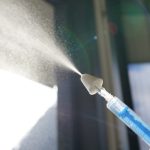As communities grappled with the COVID-19 pandemic, healthcare providers were still in the midst of a different crisis: the opioid epidemic. Stay-at-home orders affected treatment centers and support groups, while the drastic change of pace in everyday life due to school and business closures had a significant impact on mental health. A solution was needed – one that was quick, cost-effective, and most importantly, easy for patients to access. Telemedicine bridge clinics proved to be a successful tool.
Bridge clinics are exactly what they sound like: addiction treatment to bridge gaps in between patient care access, such as the waiting period in between an emergency room visit and rehabilitation, juggling work and childcare schedules, moving, or changes in insurance coverage.
A recently-released study in Drug and Alcohol Dependence Reports shows that UPMC’s Toxicology Telemedicine Bridge Clinic enhanced patient engagement and follow-through, improved patient access, and increased the use of the life-saving medication buprenorphine. Buprenorphine is an effective medication for treating opioid use disorder and has been shown to halve the risk of overdose deaths.
According to Dr. Michael J. Lynch, emergency physician and toxicologist at UPMC and lead author for the study, telemedicine bridge clinics also help to reduce stigma, especially in tight-knit communities where everyone knows where the brick-and-mortar “drug clinic” is located.
“A patient having their visits in the comfort and privacy of their own space is very powerful,” said Dr. Lynch. “At least to get started, stabilized, and on the path to recovery.”
In 2020, when the COVID-19 pandemic limited in-person contact, the government waived the requirement for in-person evaluation for prescribing buprenorphine, paving the way for remote bridge clinics to treat patients. By April of 2020, UPMC launched its Toxicology Telemedicine Bridge Clinic, one of the first in the country.
Between April 2020 and October 2021, at least 150 patients were evaluated at the clinic. All patients were Pennsylvania residents and UPMC Health Plan members. The research team used health insurance claims to identify each participant’s cost of care per month.
During the first month after a patient’s initial visit, higher medical costs were observed. According to Lynch, the cost of care goes up initially due to long periods of patients not seeking primary care while actively using drugs. Think of labs, medications, and follow-up appointments that are needed after years of not seeing a doctor. However, after the first month of treatment, the overall cost savings went down. Throughout the following six months of treatment, bridge clinics were associated with a 62% reduction in unplanned care costs and a 38% reduction in medical costs due to less need for emergency room visits and ambulance services.
This reduction in costs also speaks to the patients’ engagement with their treatment plans. Researchers saw over 90% of the telemedicine bridge clinic patients starting on medication with most continuing in their treatment.
“Bridge clinics don’t just prescribe medications. Part of our mission is to connect people to ongoing care and make the transition to community care as seamless as possible,” said Lynch.
To continue to improve that transition, widespread support for bridge clinics is vital, said Lynch. He and his team are now planning to expand their research to a larger group of patients to further evaluate the value of bridge clinics and ensure that this model of care is financially sustainable.
As time goes on and technology evolves, Lynch’s goal remains the same: “We want to provide bridge clinic access to as many people as we can, so that we can keep patients engaged during those crucial and inevitable waiting periods when starting or maintaining long-term, comprehensive care.
For more information about addiction treatment services at UPMC, visit Addiction Services and Programs Pittsburgh | UPMC or call 412-692-2273.









